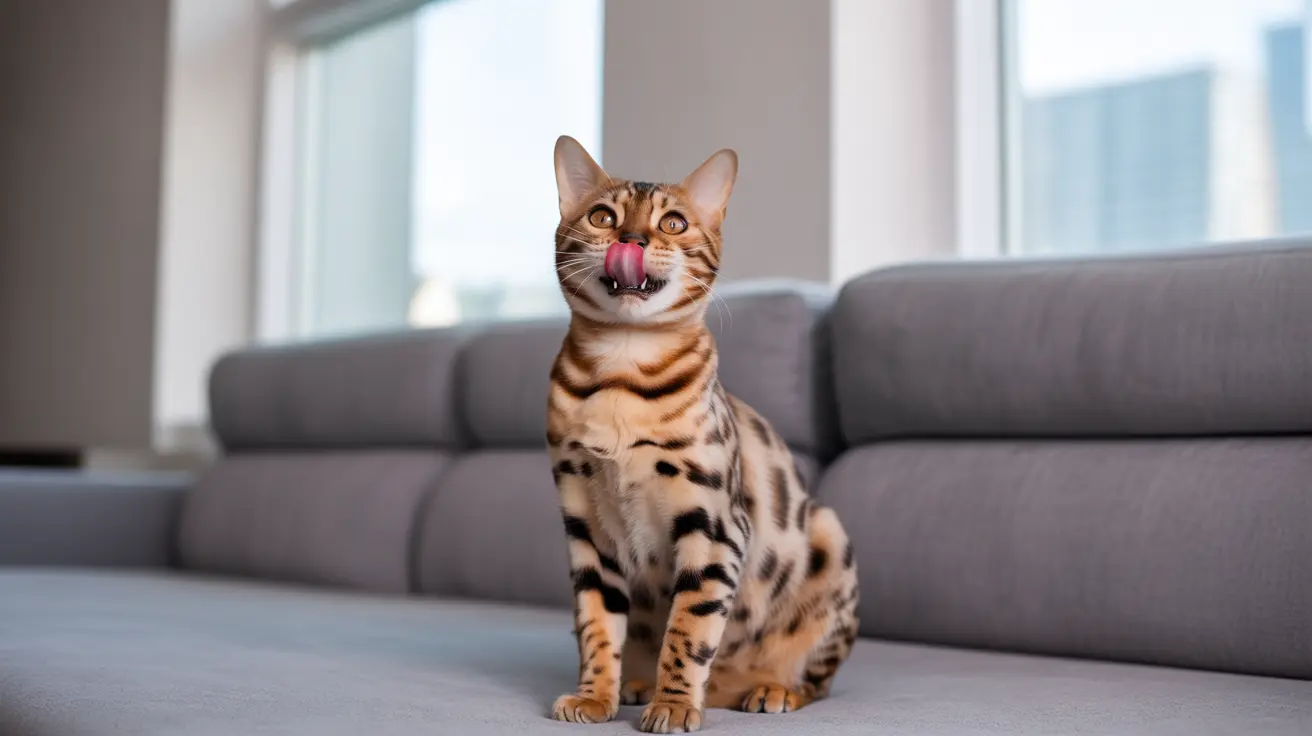As a cat owner, you may occasionally notice your feline friend holding their mouth open in what appears to be an unusual expression. While this behavior can range from perfectly normal to potentially serious, understanding the various reasons behind your cat's open mouth can help you determine when to relax and when to seek veterinary care.
In this comprehensive guide, we'll explore the different causes of open-mouth behaviors in cats, from the fascinating Flehmen response to signs of medical emergencies, helping you become a more informed and prepared pet parent.
The Flehmen Response: A Normal Scenting Behavior
One of the most common and harmless reasons for cats to hold their mouth open is the Flehmen response, often called the "stinky face." This natural behavior occurs when cats encounter interesting scents and want to analyze them more thoroughly.
During this response, cats lift their upper lip and open their mouth slightly, allowing scent particles to reach their vomeronasal organ (also known as Jacobson's organ). This specialized sensory organ helps cats process complex chemical signals, particularly pheromones from other cats.
Signs of Respiratory Distress and Medical Emergencies
While the Flehmen response is normal, open-mouth breathing in cats usually signals a medical emergency. Unlike dogs, cats typically breathe through their noses, so mouth breathing often indicates respiratory distress.
Watch for these warning signs:
- Rapid breathing or panting
- Blue-tinged gums
- Labored breathing with visible chest movement
- Neck extended forward
- Excessive drooling
- Coughing or wheezing
Heat and Exercise-Related Panting
Occasionally, cats may open their mouths and pant after vigorous play or in hot weather. While this can be normal, it should resolve quickly once your cat rests and cools down. If panting persists for more than a few minutes, it requires immediate veterinary attention.
Dental and Oral Health Issues
Sometimes cats hold their mouths open due to dental pain or oral health problems. Signs of dental issues include:
- Bad breath
- Drooling
- Difficulty eating
- Red or swollen gums
- Pawing at the mouth
When to Contact Your Veterinarian
Seek immediate veterinary care if your cat:
- Shows open-mouth breathing for more than one minute
- Appears distressed while breathing
- Has blue or pale gums
- Is lethargic or unwilling to move
- Shows signs of respiratory infection
Frequently Asked Questions
Why does my cat sometimes hold its mouth open and make a "funny face"?
This is likely the Flehmen response, a normal behavior where cats open their mouths to better analyze scents using their vomeronasal organ. It's completely natural and nothing to worry about.
When is my cat's open mouth a sign of respiratory distress or a medical emergency?
If your cat is breathing through their mouth for more than a minute, showing labored breathing, has blue-tinged gums, or appears distressed, these are signs of a medical emergency requiring immediate veterinary attention.
Can dental problems cause my cat to keep its mouth open, and what symptoms should I watch for?
Yes, dental issues can cause cats to hold their mouths open. Watch for signs like bad breath, drooling, difficulty eating, red or swollen gums, and pawing at the mouth.
How can I tell if my cat's open-mouth panting is due to stress, heat, or a serious health issue?
Normal panting from heat or stress should resolve quickly once your cat rests and cools down. If panting persists, is accompanied by distress, or occurs without obvious cause, it may indicate a serious health issue.
What should I do if my cat is breathing with its mouth open for more than a minute?
This is considered a medical emergency. Keep your cat calm and cool, and seek immediate veterinary care. Don't wait to see if it resolves on its own, as respiratory distress can quickly become life-threatening.
Conclusion
While some open-mouth behaviors in cats are perfectly normal, others can signal serious health concerns. By understanding these differences and knowing when to seek veterinary care, you can ensure your cat stays healthy and happy. When in doubt, it's always better to err on the side of caution and consult with your veterinarian.






